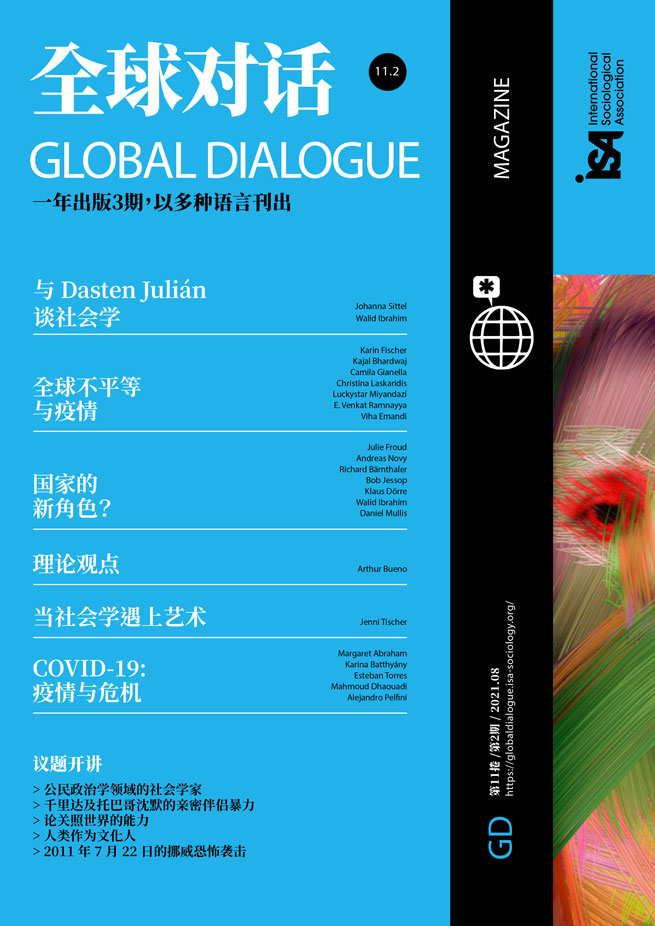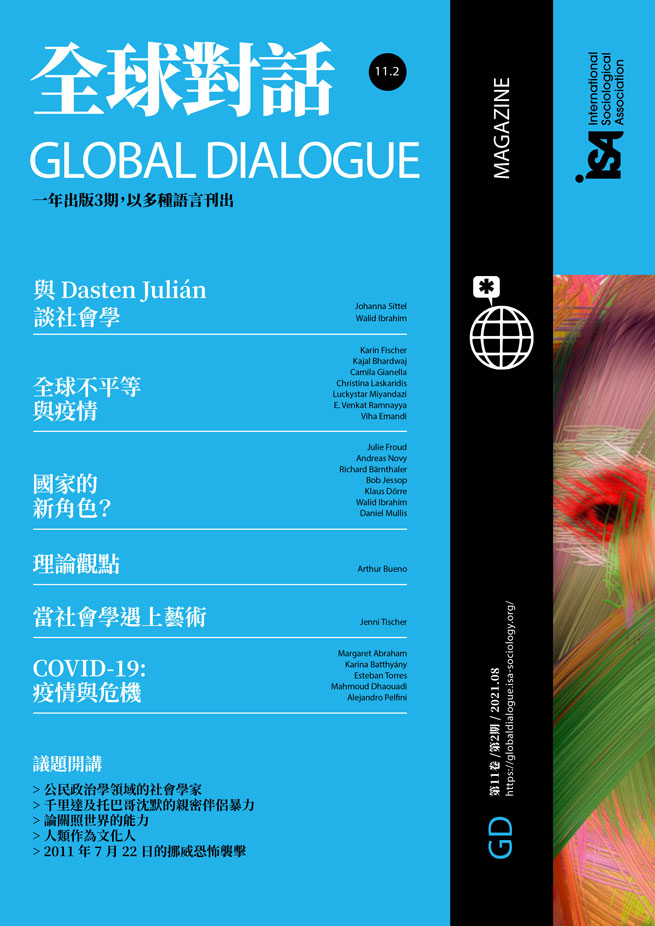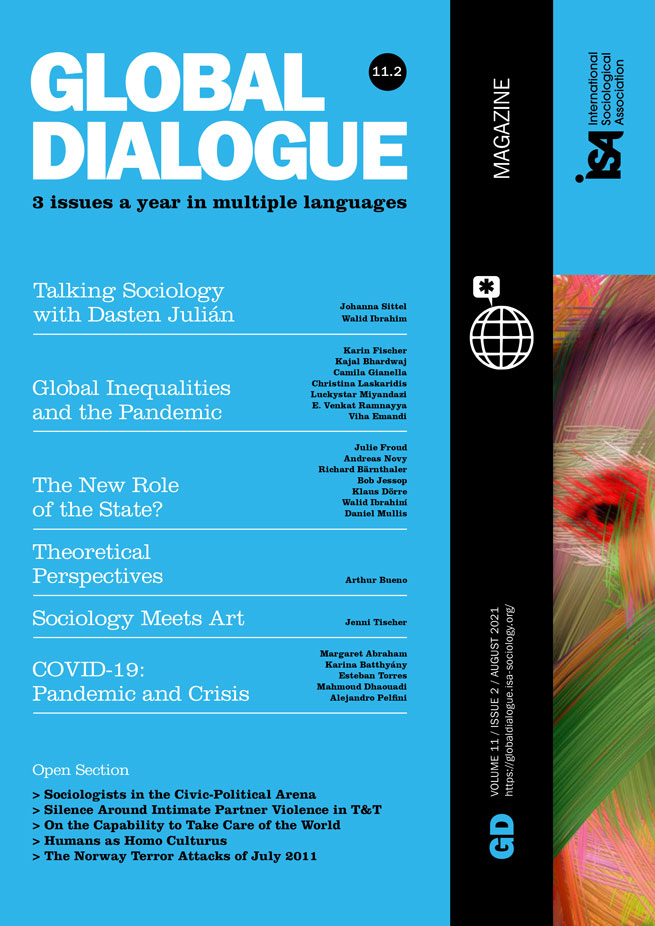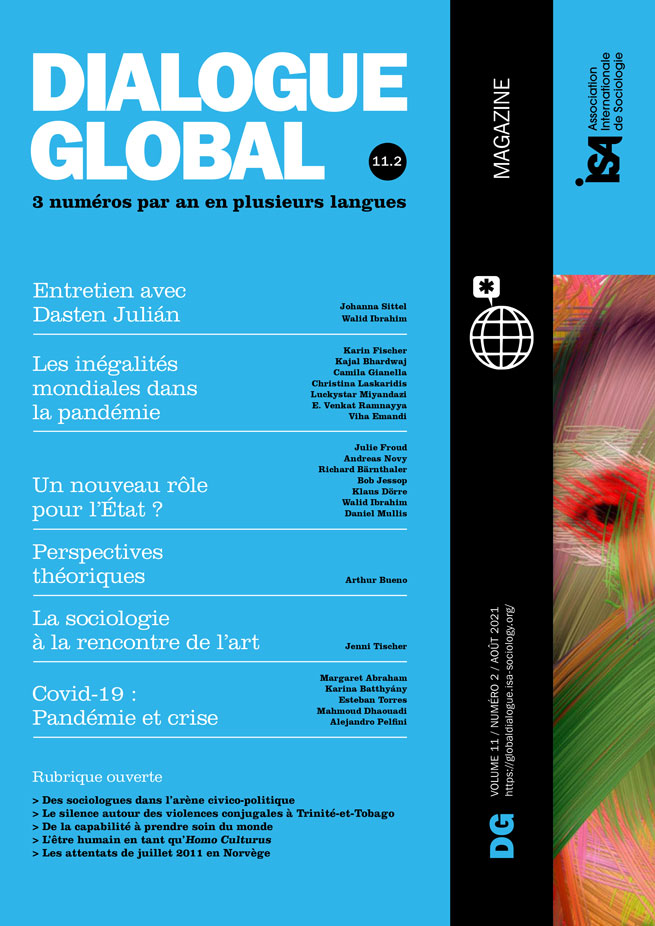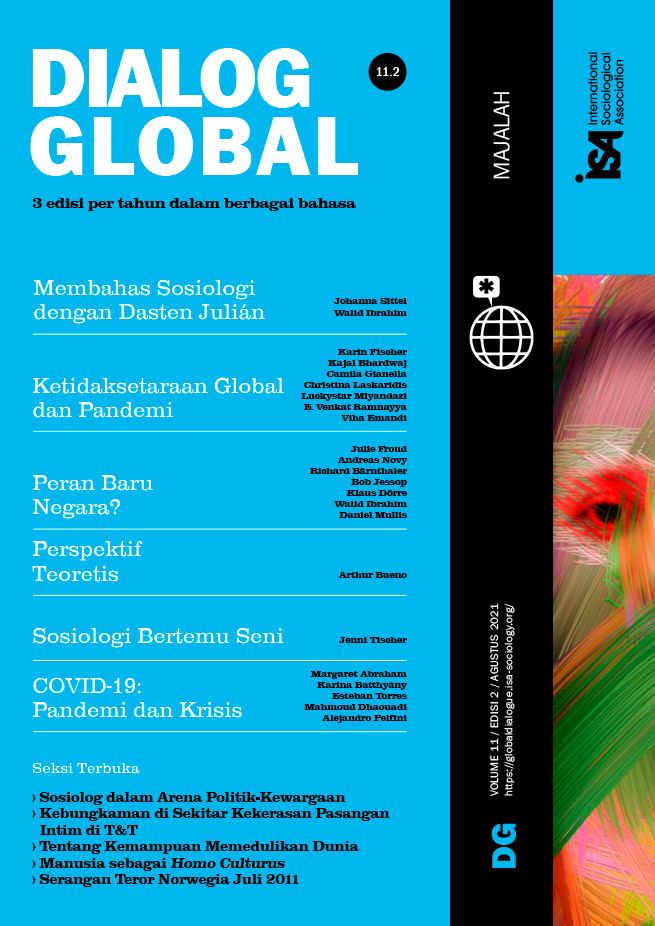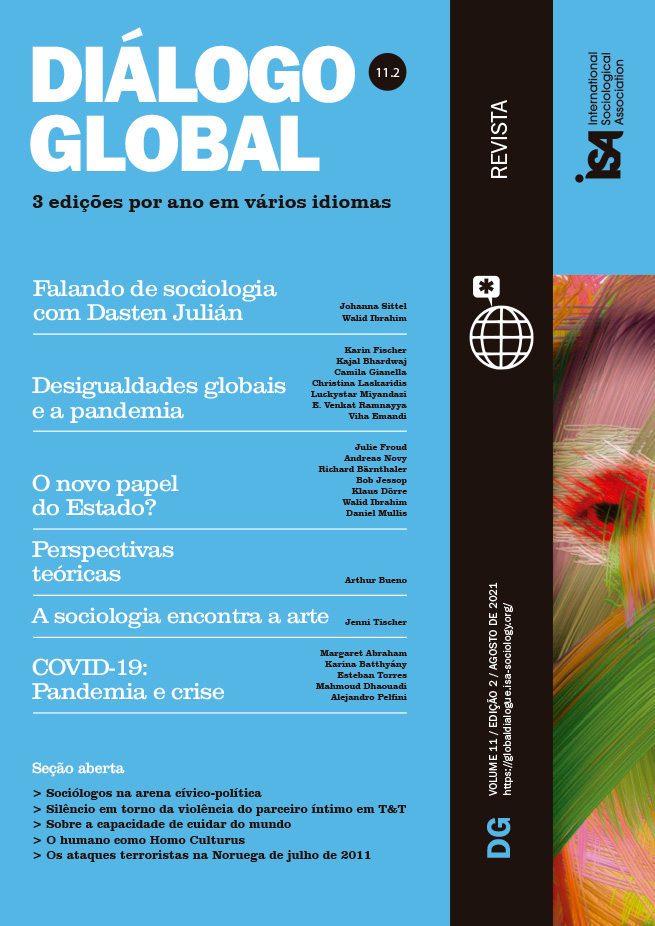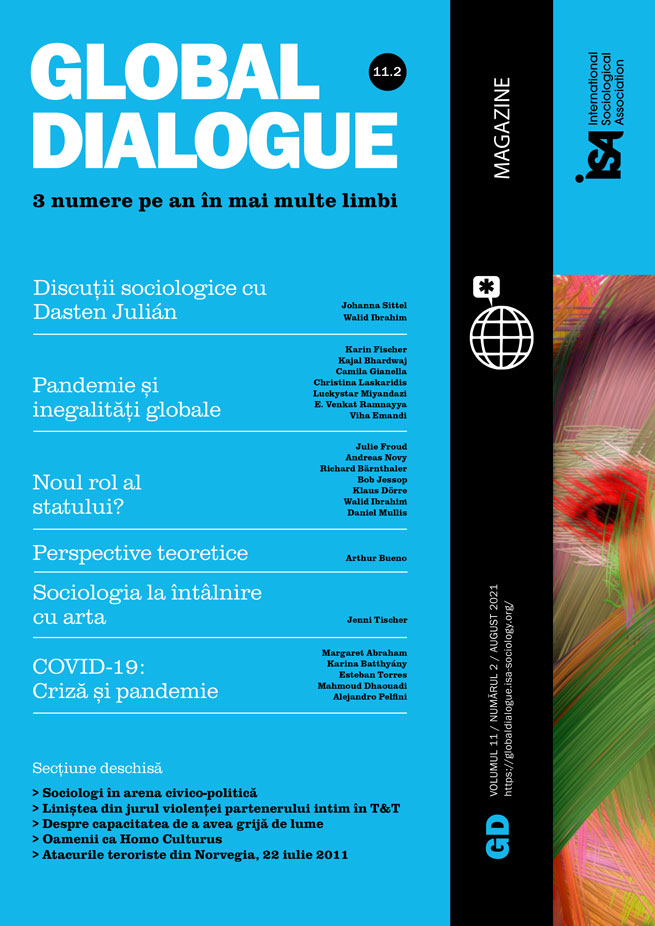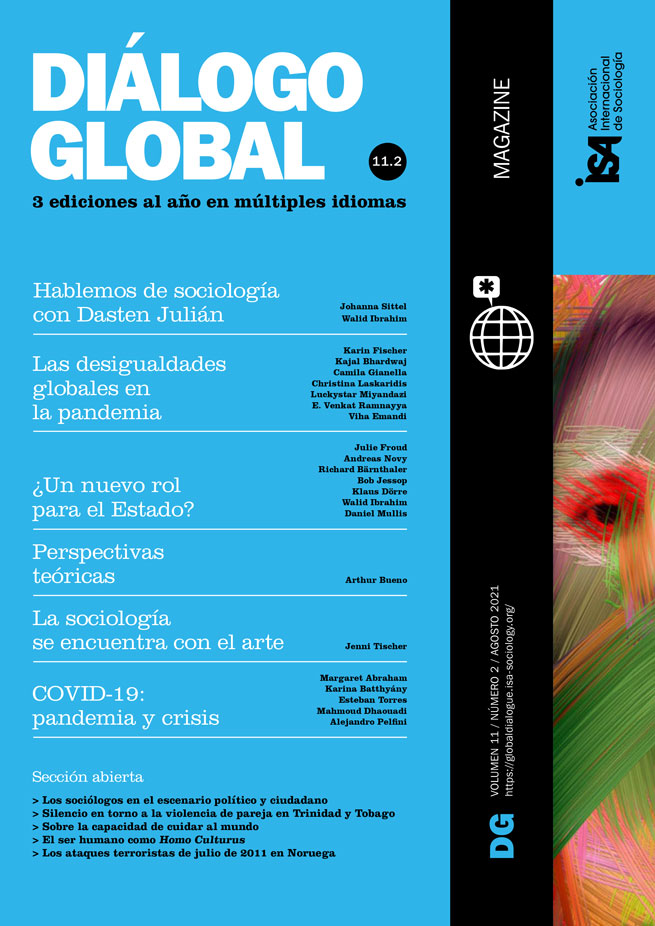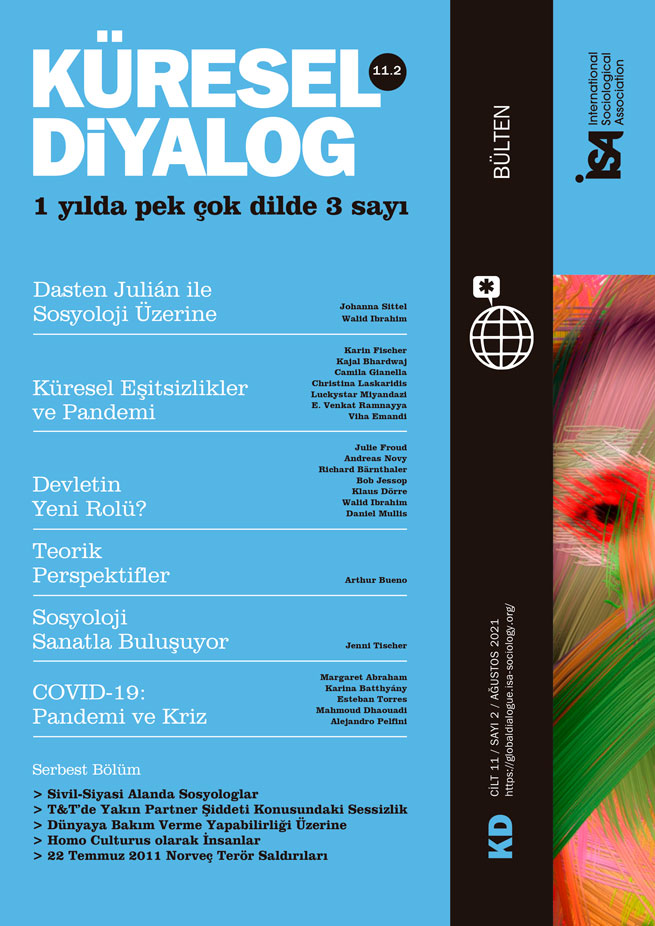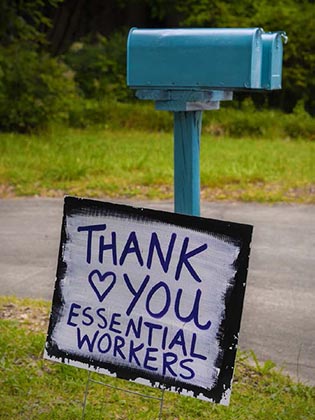The current pandemic provides a sharp reminder of the importance of the foundational economy – those goods and services consumed on a daily basis that make safe and civilized life possible. These include the pipe and cable network infrastructures that deliver utilities, communications, transport, and food supply, as well as the providential[1] services of health, care, education, and income support.[2] There is a tendency to take these for granted, undervaluing both the services and the workers that provide them, until a serious disruption creates inconvenience or major threat. During COVID-19, many citizens have realized that food distribution systems are precarious, just as power supply interruption or a drought provides a reminder of our dependence on continuous electricity or water. The pandemic has given us the term “key workers” or “essential workers,” those people who have continued to “go to work” during the crisis to ensure everyday infrastructures are maintained. At the same time, it is apparent that many of these essential workers are badly paid and in precarious situations, as well as exposed to new work-related risks from COVID-19.
Beyond this timely reminder of the critical nature of the foundational economy, the crisis underlines the importance of collective organization, provision, and in some cases consumption. Even those with high incomes are still dependent on the quality of transport systems or intensive care in hospitals; a high private income cannot guarantee a good Wi-Fi signal, nor clean air or good quality public parks. In a similar way, our individual security depends on the quality and extent of healthcare services across the globe in a pandemic. All of this reinforces the limits of standard measures of economic progress (such as per capita GDP), which fail to capture the range of different kinds of values that contribute to a good life, and often do not adequately reward those who do essential work.
Renewing provisioning and infrastructure
Recognizing the importance of these material and providential services requires clear thinking about the opportunity provided by the current moment. In short, there is a dual challenge to secure improved well-being of current and future generations through a policy and political focus on the foundational economy. The deficiencies of foundational service provision had been laid bare in many countries even before COVID-19 struck, through varying combinations of underinvestment, privatization, marketization, and financialization. Infrastructure that is literally crumbling, underfunded care in ageing societies, “food deserts” where citizens cannot easily access good quality fresh food: these are all examples of failures of foundational provision, where improvements would enhance the well-being of citizens.
In many cases, foundational renewal for the well-being of current generations requires additional financial resources for both capital and revenue funding. Even in high income countries like Germany, the deterioration of transport and educational infrastructures has been subject to intense debate. However, investment on its own will not address problems that are also a consequence of how services are organized and provided, meaning that renewal also needs to cover the reform of what are often dysfunctional business models. For example, an underfunded care system requires more resources to meet the health and social needs of a growing group of older or vulnerable people. However, if care providers are owned by private equity or other extractive ownership forms, additional resources may get directed into higher profits and not into hiring more workers or improving care. Or, if care is organized by large bureaucracies with little input from care recipients, additional resources should be combined with reforms to localize provision and give greater voice to stakeholders.
While improving services for citizens through rebuilding infrastructures and services, the political challenge of foundational renewal includes addressing the climate and nature crises to also deliver the well-being of future generations.[3] For example, meeting net zero emissions targets will require significant contributions from foundational economy activities like housing, transport, and food.[4] As these are essential, reductions in emissions will result not from abstention but from changes in production and consumption, encouraged by new regulations and behavioral shifts. This could include different construction techniques and retrofitting existing buildings to make them more energy-efficient, changes in the composition of food consumed, and substituting active travel and public transport for private vehicles.
A clear role for the state
There is a clear role for the state in these renewal processes. It is not only the case that many foundational services are provided and/or financed by the state to some degree, but that social citizenship, enabled through access to these infrastructures of everyday life, requires a state that is accountable and responsive. Many of the original foundational infrastructures like water and sewerage systems, electricity girds, or public hospitals were delivered through planning and engineering on a top-down basis. Renewal and provision of new infrastructures needs also to provide a much stronger role for citizen participation, especially where there are trade-offs (as with addressing climate change or working within budgets) or where expertise in communities and locally-based organizations already understands how to improve social outcomes, such as in public health.
The renewal of the foundational economy is also an important precondition to other policies promoting universal basic income or universal basic services. Simply giving cash to citizens will not ensure well-being, as quality of life depends on access to collectively provided services such as healthcare, broadband, social housing, integrated and affordable public transport, and green space. If there is to be a meaningful legacy from the pandemic it should include a renewal of the foundational economy, which enhances current livability in a way that is socially and ecologically sustainable.
[1] The term providential is used here in the sense of provident, to provide for future needs. The term echoes the providential societies, which were established to allow people to save to pay for costs of sickness etc. in the future. The term covers public and welfare services.
[2] For more information, see: https://foundationaleconomy.com/introduction/.
[3] For more information, see: https://foundationaleconomycom.files.wordpress.com/2021/01/fe-wp8-meeting-social-needs-on-a-damaged-planet.pdf.
[4] For example, the Stockholm Institute estimates that 59% of the ecological footprint in Wales can be attributed to consumption of food (28%), housing (20%), and transport (11%) https://gov.wales/sites/default/files/publications/2019-04/ecological-and-carbon-footprint-of-wales-report.pdf.
Julie Froud, The University of Manchester, UK, for the Foundational Economy Collective <julie.froud@manchester.ac.uk>





